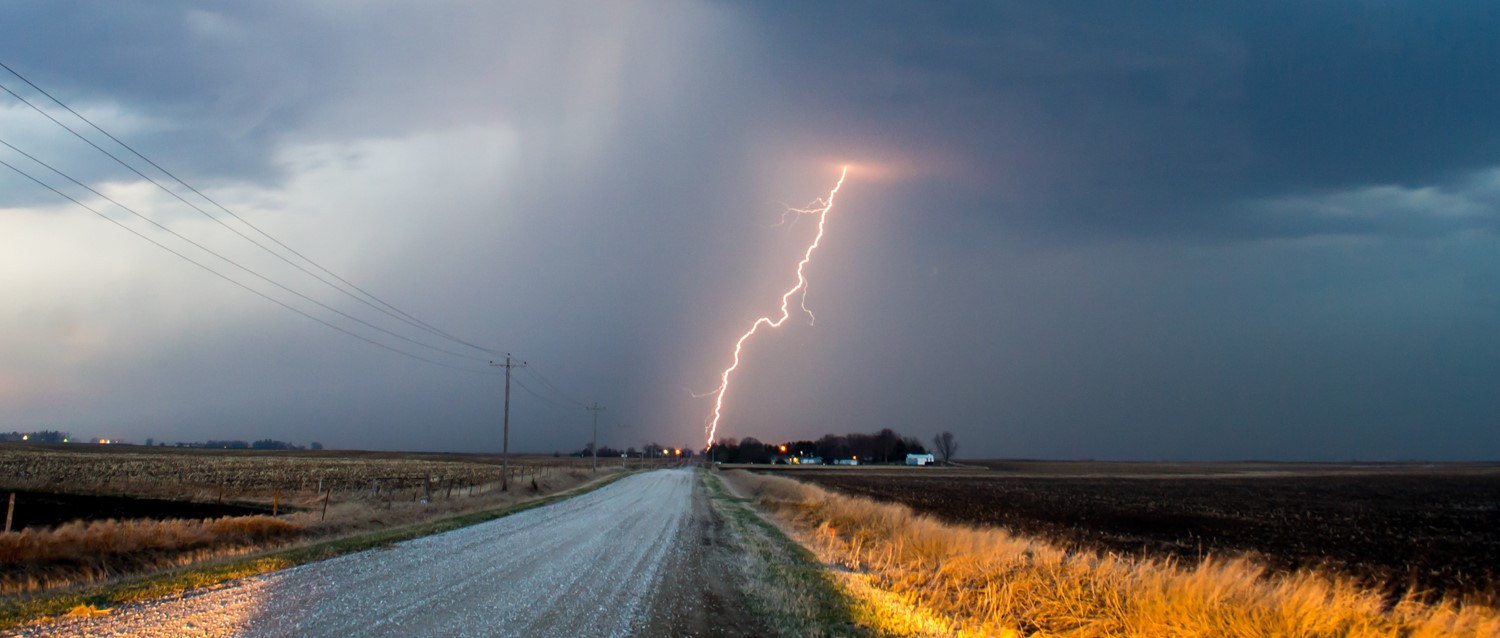
How does climate change affect mental health?
Peer reviewed by Dr Krishna Vakharia, MRCGPAuthored by Amberley DavisOriginally published 29 Sept 2022
Meets Patient’s editorial guidelines
- DownloadDownload
- Share
- Language
- Discussion
From extreme weather events to TV and social media news stories, the climate change crisis touches everyone's lives in one form or another. How is this affecting our mental well-being? And how can we try to stay positive in an increasingly negative world?
In this article:
Climate change as a human health emergency
"Climate change is a human health emergency that is having increasingly frequent, widespread and severe negative impacts on people's physical and mental health," says Sultana Afdhal, CEO of the World Innovation Summit for Health (WISH), Qatar Foundation's global health initiative.
The climate change crisis describes the long-term shifts in weather patterns and temperatures across the globe that threaten to negatively, and perhaps irreversibly, affect the health of both people and the planet.
An increasingly more common topic in our news stories, many of us are familiar with the terrifying statistics and predictions from experts - for example:
Average global temperatures are estimated to rise by approximately 2° Celsius by 20501.
Sea levels are expected to rise by 30-50 centimetres by 20502.
These changes increase the occurrences of dangerous natural events, from wildfires and droughts to more extreme storms and floods3.
If reading these figures conjures up feelings of stress or depression, you're not alone. Human health and environmental health are so inextricably linked that it can touch us all, whether we feel we have felt the direct effects of it or not.
Afdhal highlights that the two broad categories of the climate change impact, outlined in WISH's Health in the Climate Crisis report3, include harm as a result of acute events (such as floods, storms, and heatwaves) and long-term anxiety, depression, and stress felt indirectly in response to the worsening climate crisis."
Let's take a closer look at climate change and mental health through both of these categories, and how we can also use our environment to give our well-being a much-needed boost.
The impact of climate change on mental health
Back to contentsDirect impact on mental health
Extreme weather events are one of the more obvious links between health and climate. The physical health impacts are often immediate, but the mental health outcomes are often longer term and harder to measure.
For example, the 'black summer' of wildfires in Australia between June 2019 and February 2020 resulted in the death of 30 people and breathing problems in 35% of the population of New South Wales during January, but it is also thought that the mental health outcomes could be evident for five years after the fires4.
According to Afdhal, high temperatures and other extreme weather events can also harm food and water security and economic stability. In turn, this brings its own set of mental health effects.
"For example, take water scarcity or disruption to optimal temperatures for crop growth," says Afdhal. "It threatens mental health in rural populations, as a result of economic losses from crop failures, humiliation and shame over financial struggles, and social isolation in times of drought.
"Lower agricultural produce due to drought can also lead to malnutrition and hunger which, in turn, can cause anxiety, depression, and even PTSD, due to the constant stress of not knowing when and where the next meal is coming from. Food instability can also result in forced migration, which is also emotionally taxing."
Indirect impact on mental health
Of course, in the UK our contact with extreme weather events usually comes through the news or social media. But this physical distance from such events doesn't necessarily mean we're emotionally detached. Dr Elena Touroni, consultant psychologist and co-founder of The Chelsea Psychology Clinic, explains:
"These kinds of natural disasters are all likely to be triggering, especially for those who already suffer from anxiety day-to-day. Anxiety itself is characterised by a feeling of vulnerability in the world, and so watching natural disasters play out can heighten these fears."
Kendall Roach, mental health therapist at digital healthcare company Babylon, agrees that watching negative climate change media stories can "overwhelm us and create feelings of hopelessness".
Continue reading below
Managing long-term eco-anxiety
Back to contentsWhen it comes to climate change and mental health, it's important to understand that anyone can experience an emotional reaction, not just those with pre-existing mental health struggles or mental illness (although Touroni emphasises that these people are particularly vulnerable).
In fact, this brand of fear has become so widespread that it has been named 'eco-anxiety', which "refers to persistent worries about the climate crisis and the future of the Earth", Touroni explains.
In October 2021, the Office for National Statistics (ONS) found that5:
75% of British adults were worried about the impact of climate change.
43% reported having been very or somewhat anxious about the future of the environment over the previous month.
Of those worried, one of the most common fears was for their family's future.
It can be scary to think about the future impact of climate change, but fortunately psychotherapists like Roach have some coping tips: "I often encourage patients to focus on the smaller circle of things within their control, and on the things that they can do personally to effect greater change on a larger scale daily.
"Patients often feel that what they can give or do is so small and insignificant, but I remind them: "If everyone is doing their personal part daily, how much greater will that change be on a global scale?"
The link between nature and mental health
Back to contentsSmall personal climate action goals may be one way to help keep you positive but remember that inaction can also be just as important. No, not staying-in-bed-all-day inaction (one can dream!) but rather the relaxing-in-nature type of inaction.
"Immersing ourselves in nature has been shown to have several mental health benefits. In fact, just looking at photos of awe-inspiring views has been shown to stimulate the parasympathetic nervous system - the part of our nervous system that helps us feel calm," says Touroni.
Roach highlights several other mental health benefits of spending time in natural settings:
Vitamin D, which we absorb through the skin from sunlight, is essential to mental health and wellness. Research has proven a direct correlation between low levels of vitamin D and depression.
Exercise increases healthy endorphins (our 'happy hormones') which also improves our mood.
Many also believe that the elements can have a soothing effect on our mental state. For example, some people find water very relaxing to listen to or to watch, and it symbolises 'cleansing'. Planting a garden and watching it grow can also be therapeutic and symbolises 'new growth'.
One 2020 study suggested that we may even feel our emotions improving after as little as 10 minutes in a natural setting6!
Continue reading below
Practising positivity
Back to contentsWhen we worry about the future, we can sometimes forget to live in the present. By spending time in nature, you have a better chance of protecting your own health. Touroni also points out that, while these issues can feel scary, in reality the implications of climate change are not fully predictable.
Let's also not forget, mental positivity can be a great driver for positive, real-world change - research repeatedly shows that people with a positive mindset are more productive and successful in their goals than those who bear the burden of negativity and pessimism7.
Roach says "practising 'mind over mood', mindfulness, and keeping our mindset on our localised centre of control can help us all stay positively focused and to avoid feeling overwhelmed or hopeless."
Of course, it's important to stay up to date with world events but try to look out for the climate change stories of hope and positive action as well. For example, WISH's global summit on October 4-6 2022, which Afdhal describes as: "A dedicated forum which will investigate the effects of climate change on food security and health (both physical and mental), and outline recommendations for governments to mitigate these effects now and in the future."
Further reading
Back to contentsSmith and Woodward, Human health: impacts, adaptation, and co-benefits.
Department of health and aged care, Australian Government mental health response to bushfire trauma.
Office for National Statistics, Three-quarters of adults in Great Britain worry about climate change.
Tenney et al. Does positivity enhance work performance?: Why, when, and what we don't know.
Patient picks for Environmental conditions

General health and lifestyle
What's a permacrisis, and its impact on our mental health?
There seems to have been nothing but bad news for the last few years, with constant reports of viruses, wars, and political misbehaving. Lurching from one crisis to another has now got its own new name 'permacrisis', but how does this never-ending stream of negative news affect us?
by Noella Pio Kivlehan

General health and lifestyle
UK water quality part 1 – is tap water safe?
We drink it every day, and sometimes we swim in it. Access to clean water is a fundamental human right, but growing concerns over sewage pollution have shone a spotlight on UK water. From impurities in drinking water to pollutants in our rivers and seas, we find out how the UK cleans up. In part 1 of this series, we start in the home and explore the potential safety concerns of our tap water.
by Amberley Davis
Article history
The information on this page is peer reviewed by qualified clinicians.
29 Sept 2022 | Originally published
Authored by:
Amberley DavisPeer reviewed by
Dr Krishna Vakharia, MRCGP

Ask, share, connect.
Browse discussions, ask questions, and share experiences across hundreds of health topics.

Feeling unwell?
Assess your symptoms online for free
Sign up to the Patient newsletter
Your weekly dose of clear, trustworthy health advice - written to help you feel informed, confident and in control.
By subscribing you accept our Privacy Policy. You can unsubscribe at any time. We never sell your data.